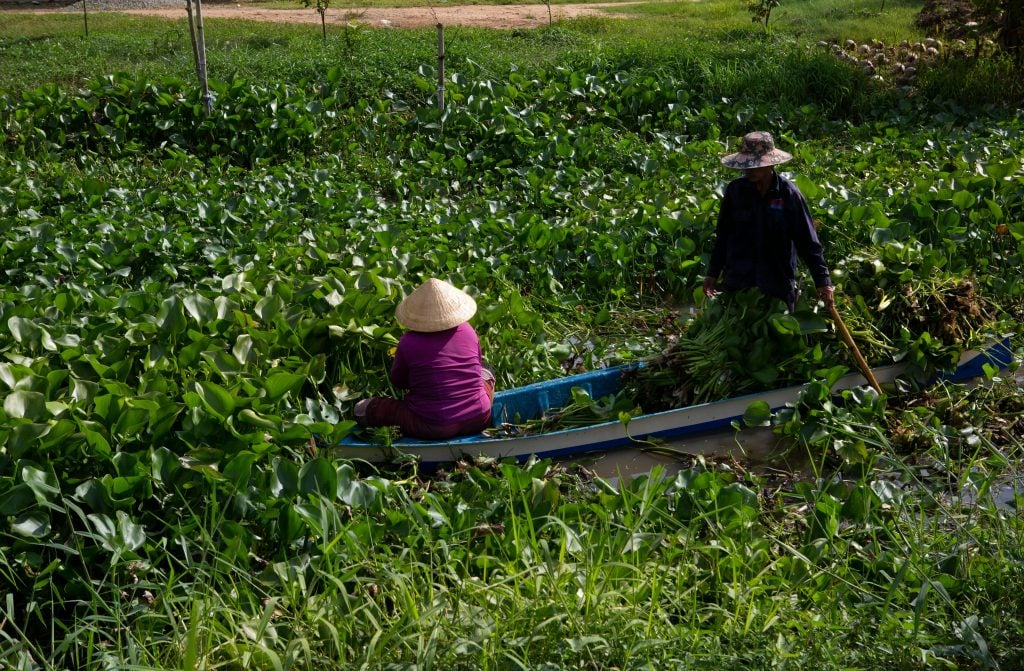
MDPI Papers Cited in the News – June 2024
In this month’s Cited in the News, we look at MDPI research cited in popular news outlets. After selection from the 929 news mentions, we present MDPI research cited this month in BBC News, NBC News and The Washington Post. We learn more about parasitic disease and the development of a vaccine against Human Schistosomiasis as well as the treatment of cancer using revolutionary antibody-conjugate drugs. We also explore how the behaviors of Joro Spiders are impacted by urbanization, and how the effects of climate change can burden rural communities.
Vaccine development against Human Schistosomiasis
Cited in BBC News: Why it’s so challenging to develop vaccines for parasitic diseases
Article published in Vaccines: Development of the Sm14/GLA-SE Schistosomiasis Vaccine Candidate: An Open, Non-Placebo-Controlled, Standardized-Dose Immunization Phase Ib Clinical Trial Targeting Healthy Young Women

A recent BBC article discusses the difficulties of vaccinating against parasitic diseases. This is due to the enormous complexity of the parasites. The death toll for parasitic diseases is lower than that of viral- and bacterial-induced death. However, there is still a vital need for more research and more funding for the millions who are afflicted.
An example of a parasitic disease is Schistosomiasis. The World Health Organization (WHO) reports that over 240 million people have been infected with Schistosomiasis, a type of parasitic disease caused by trematode worms living in freshwater in tropical regions. An article published in Vaccines shows a recent breakthrough in the successful development of the Sm14/GLA-SE vaccine. Sm14 is a fatty acid-binding protein present in humans upon infection of Schistosomiasis. The article shows how the application of the vaccine in young, healthy adult women is both safe and successful in producing an immune response. Therefore, the article confirmed that the vaccine has passed phase Ib clinical trials.
The vaccine is currently in Phase II/III clinical trials, with another two vaccine candidates for Schistosomiasis under development, which target different schistosome surface proteins.
Understanding Joro spider prey‒capture behavior
Cited in The Washington Post: Giant Joro spiders are invading the East Coast. Don’t worry, they’re shy.
Published in Arthropoda: How Urban-Tolerant Are They? Testing Prey–Capture Behavior of Introduced Jorō Spiders (Trichonephila clavata) Next to Busy Roads
Joro Spiders have been garnering attention as they increase in numbers along the East Coast of the United States (U.S). Although they are venomous, their venom does not cause any serious damage to humans. Their presence has encouraged researchers to investigate their behavioral patterns, and how they have adapted to live alongside humans.
Urbanization is a significant disruptor of wildlife and can impact the presence of different species in their habitat. Joro spiders have been shown to be able to reside nearby busy roads. A research article published in Arthropoda analyses these behavioral changes in the spiders and how they respond to environments that are louder and busier. They did this by analyzing their prey-capturing behavior near busy roads in Northeast Georgia. They found that although the spiders near busier roads caught less prey than those not near busy roads, they did not weigh any less. The article suggests that there might be a mechanism at play where the spiders are able to ‘compensate for the disturbance’.
The paper gives the reader an interesting insight into the behaviors of the Joro Spider, and how insects can adapt to the ever-increasing urbanization of wild habitats.
Impact of invasive water hyacinth on rural communities
Cited in BBC News Floating Bamboo houses keep this Indigenous tribe safe in a typhoon
Published in Plants: Invasive Water Hyacinth: Ecology, Impacts and Prospects for the Rural Economy

Water Hyacinth is one of the most invasive aquatic species on the planet, known to cause significant disruption to environments and a burden to communities. One of these communities includes the Manobo indigenous community residing in the Marshlands of the Philippines. A BBC news article mentions how the overgrowth of invasive water hyacinth has significantly impacted the indigenous tribe. The people of the tribe are housed in homes floating on water and made up of traditional bamboo structures.
Climate change has encouraged the exponential growth of water hyacinths which has exacerbated their growth, causing a great burden and impact on communities like the Manobo community. This includes things like restricting sufficient water flow, making it difficult for boats to reach the areas.
The BBC News post cites a recent article published in Plants. In this article, the authors discuss the significant impacts the plant species have on rural communities. Termed ‘the world’s most invasive weeds’, they discuss strategies for the management of the plant. This includes converting the plant into different products that could either be used by the communities themselves or sold to other industries that need the material. But this requires strategy and a ‘green nudge’ to encourage rural communities to aid in the management of water hyacinth.
The article explains how these strategies will ‘foster resilience and lead to more sustainable solutions for the water hyacinth control and management issues.’
Antibody‒drug conjugates for cancer therapy
Cited in NBC News: Cancer-fighting antibodies inject chemo directly into tumor cells, upping effectiveness
Published in Cancers: Antibody–Drug Conjugates: A Review of Approved Drugs and Their Clinical Level of Evidence
Cancer therapies have advanced drastically within the last decade. One therapy that has been approved for clinical trials as of June 2023 includes the use of antibody‒drug conjugates. An NBC News article discusses how these antibody‒drug conjugates are exceedingly effective and cause fewer side effects.
The drug comprises a chemotherapy drug attached to a specific antibody that can bind to cancer cells. This creates an approach by which only cancer cells can be targeted and destroyed, rather than normal healthy cells, which is the case in traditional chemotherapy. This results in fewer side effects in patients who take the drug.
The NBC News article cites a review on antibody‒drug conjugates published in Cancers. The review provides a comprehensive run-down of the different types of antibody‒drug conjugates and their mechanisms of action. It also provides the clinical evidence which led to the approved usage of each drug.
To explore more of different types of research published at MDPI, see the full list of journals here.










